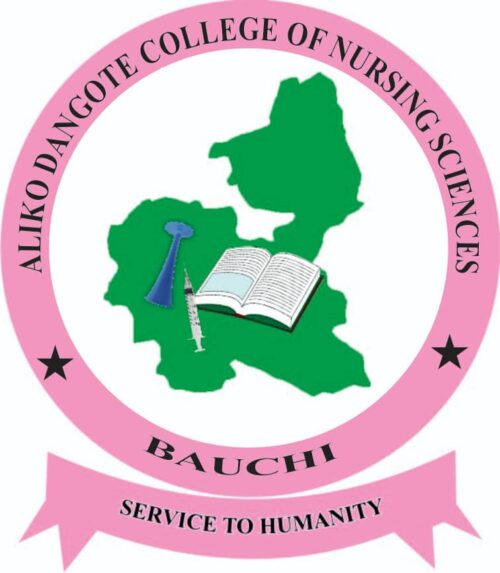Economics Keypoints: Natural Resources and the Nigerian Economy; This study material is suitable for students sitting for the following exams: JAMB, WAEC, NECO, GCE, IJMB, and JUPEB. Nigeria, endowed with diverse natural resources, plays a significant role in Africa’s economic landscape. The country’s resources range from petroleum and solid minerals like gold, diamond, coal, tin, and timber to agricultural produce.
Among these resources, petroleum has historically dominated Nigeria’s economy, accounting for a substantial portion of government revenue, foreign exchange earnings, and Gross Domestic Product (GDP). However, despite its vast natural wealth, Nigeria faces challenges in effectively harnessing and diversifying its resource-driven economy.
Study other economics keypoints here
The development and exploitation of natural resources have both positive and negative impacts on the economy, environment, and society. While oil revenue has fueled economic growth, it has also led to over-dependence, neglect of other sectors, environmental degradation, and socio-economic challenges. Diversification efforts to promote non-oil sectors such as agriculture, manufacturing, and solid minerals have been initiated to reduce vulnerability to oil price fluctuations and create a more balanced and sustainable economy.
Economics Keypoints: Natural Resources and the Nigerian Economy
In this context, examining the historical development, contributions, linkages, challenges, and sustainable management of Nigeria’s natural resources becomes crucial for the country’s economic growth, environmental preservation, and overall societal well-being.
a. Development of Major Natural Resources in Nigeria
i. Trace the development of the major natural resources in Nigeria:
Petroleum: Nigeria’s petroleum industry dates back to the 1950s, with commercial production starting in the late 1950s and early 1960s. The discovery of oil in Oloibiri, Bayelsa State, marked the beginning of significant oil exploration and production activities in the country.
Solid Minerals (Gold, Diamond, Timber, etc.): Nigeria is endowed with various solid minerals like gold, diamond, coal, tin, and timber. However, the development of these resources has been limited compared to petroleum due to challenges in exploration, mining techniques, infrastructure, and regulatory frameworks.
b. Contributions of the Oil and Non-Oil Sectors to the Nigerian Economy
ii. Assess the contribution of the oil and the non-oil sectors to the Nigerian economy:
Oil Sector Contribution: Nigeria heavily relies on its oil sector, accounting for a substantial portion of government revenue, export earnings, and GDP. However, its dominance has led to over-dependence, vulnerability to oil price fluctuations, and neglect of other sectors.
Non-Oil Sector Contribution: While the non-oil sector encompasses agriculture, manufacturing, services, and solid minerals, its contribution to the economy has been relatively lower. However, efforts are being made to diversify the economy and reduce reliance on oil through initiatives in agriculture, manufacturing, and other sectors.
c. Linkage Effects
iii. Establish the linkages between natural resources and other sectors:
Economic Linkages: Natural resources, especially oil, impact various sectors through government revenue, foreign exchange earnings, infrastructure development, and investment opportunities.
Social Linkages: Natural resource exploitation can lead to social impacts such as employment generation, community development, and migration to resource-rich areas.
Environmental Linkages: The extraction and use of natural resources can have environmental implications, including deforestation, pollution, habitat destruction, and climate change.
d. Upstream/Downstream of the Oil Sector
v. Distinguish between the upstream and downstream activities in the oil sector:
Upstream Activities: Involve exploration, drilling, and production of crude oil. It includes activities like seismic surveys, drilling of wells, and extraction of oil from reservoirs.
Downstream Activities: Encompass refining, processing, and distribution of petroleum products. This includes refining crude oil into usable products like gasoline, diesel, and petrochemicals, as well as marketing and distribution of these products.
e. The Role of NNPC and OPEC in the Oil Sector
vi. Examine the roles of NNPC and OPEC in the oil sector:
NNPC (Nigerian National Petroleum Corporation): NNPC plays a crucial role in Nigeria’s oil sector as the state-owned entity responsible for oil exploration, production, refining, and marketing. It oversees joint ventures, regulates the sector, and manages oil assets in partnership with international oil companies.
OPEC (Organization of the Petroleum Exporting Countries): Nigeria is a member of OPEC, a cartel of major oil-producing nations. OPEC aims to coordinate and stabilize oil prices globally by regulating production levels among member countries.
f. Challenges Facing Natural Resources Exploitation
vii. Suggest ways of controlling the effects of natural resource exploitation:
Environmental Regulations: Implement and enforce stringent environmental regulations to minimize negative impacts such as pollution, deforestation, and habitat destruction.
Sustainable Practices: Promote sustainable exploitation practices that balance economic gains with environmental conservation, ensuring resources are not depleted and ecosystems are preserved.
Diversification: Encourage economic diversification to reduce over-dependence on a single resource, mitigating the risks associated with fluctuations in commodity prices.
Community Engagement: Involve local communities in resource management decisions, ensuring fair benefit sharing, and promoting social responsibility among resource extractors.
Technological Advancements: Invest in research and technology to improve extraction methods that minimize environmental damage and maximize resource recovery.
In summary, Nigeria’s natural resources, particularly petroleum, have significantly shaped its economy. However, over-reliance on oil has led to challenges, necessitating diversification efforts. Sustainable exploitation, diversification, community engagement, and technological advancements are essential for mitigating challenges and ensuring responsible and balanced natural resource management for sustainable development.







